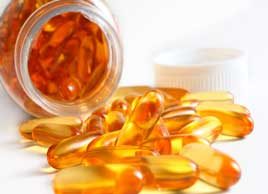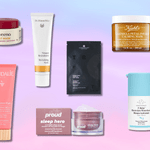Could a pill improve your skin?
Antioxidant-rich foods help to keep your skin healthy, but now these ingredients are offered in the form of supplements that aim to smooth wrinkles and leave our skin glowing. Find out if your next wrinkle cream could be something you swallow

Source: Best Health Magazine, October 2011
Sometimes called skingestibles or nutricosmetics, these pills, powders and ingestible potions contain a range of marine and plant compounds intended to improve skin‘s structure, appearance and tone.
But do they work? Winnipeg dermatologist Dr. Victoria Taraska says much of the research on beauty supplements is small-scale, and therefore inconclusive. ‘Using antioxidants as a topical treatment has proven to sequester some of the free radicals and prevent some of the damage,’ she says. ‘But if you take a supplement and you already have a healthy diet, how much is actually being absorbed and making it to the skin? There’s not a lot of data yet.’
Consider, for example, Europe-based Imedeen, which offers three anti-aging skingestibles aimed at women of differing ages, ranging from $80 to $128 ‘for a one-month supply. All have the company’s exclusive Biomarine Complex, a marine extract meant to increase the production of collagen and elastin. Derma One for women age 30-plus ($80) contains zinc and vitamin C; Time Perfection formula, geared to women over 40 ($95), includes the antioxidants lycopene and grapeseed extract to slow skin degradation; and Prime Renewal, geared to post-menopausal skin ($128), contains soy isoflavones (natural plant-based phytoestrogens), zinc and camomile. All are available through pharmacies, cosmetic counters and spas.
Although more than 20 published, peer-reviewed clinical studies (several of which appeared in well-known dermatology journals) found that Imedeen improved skin, the largest study included just 144 participants, and the research was sponsored by Imedeen (as is common in the field of both pharmaceuticals and nutraceuticals).
Nonetheless, Toronto dermatologist Dr. Charles Lynde counts himself among the believers. Lynde, an assistant clinical professor at the University of Toronto, presented the results of a European study on Imedeen to the Canadian Dermatology Association as early as 2000, and he regularly recommends the product to his patients.
‘Not only do I see an improvement in people’s skin, but the patients feel it has improved,’ he says.
According to Corina Crysler, a Toronto-based nutrition and food chemistry consultant, and co-founder of Canadian company Glisodin Skin Nutrients, it would be almost impossible to get from food the concentration of antioxidants that are contained in Glisodin‘the main ingredient in all of her company’s skincare formulas. It’s made from a melon extract rich in antioxidant enzymes called superoxide dismutase (SOD), combined with gliadin, a wheat protein designed to protect the SOD during the digestion process. Unlike a conventional vitamin or herbal pill, says Crysler, Glisodin is intended to go beyond simply supplementing your diet, to protect your skin against the environment and premature aging. It is sold through doctors’ offices and spas. Crysler recommends the 15-day Advanced Detoxification powder formula seasonally (four times a year) ($125); and the Advanced Anti-Aging Formula for hydration and reducing fine lines and wrinkles ($95 for a one-month supply).
As with most skingestibles, you need to take the supplements on an ongoing basis for best results, say their promoters.
In the end, though, these products are only one potential element of overall good skin care. Says Lynde: ‘It’s just another thing that can help with overall skin health.’
Indeed, no product is going to make up for a poor diet or roasting on the beach.
This article was originally titled "Beauty in a pill?" in the October 2011 issue of Best Health. Subscribe today to get the full Best Health experience’and never miss an issue!




